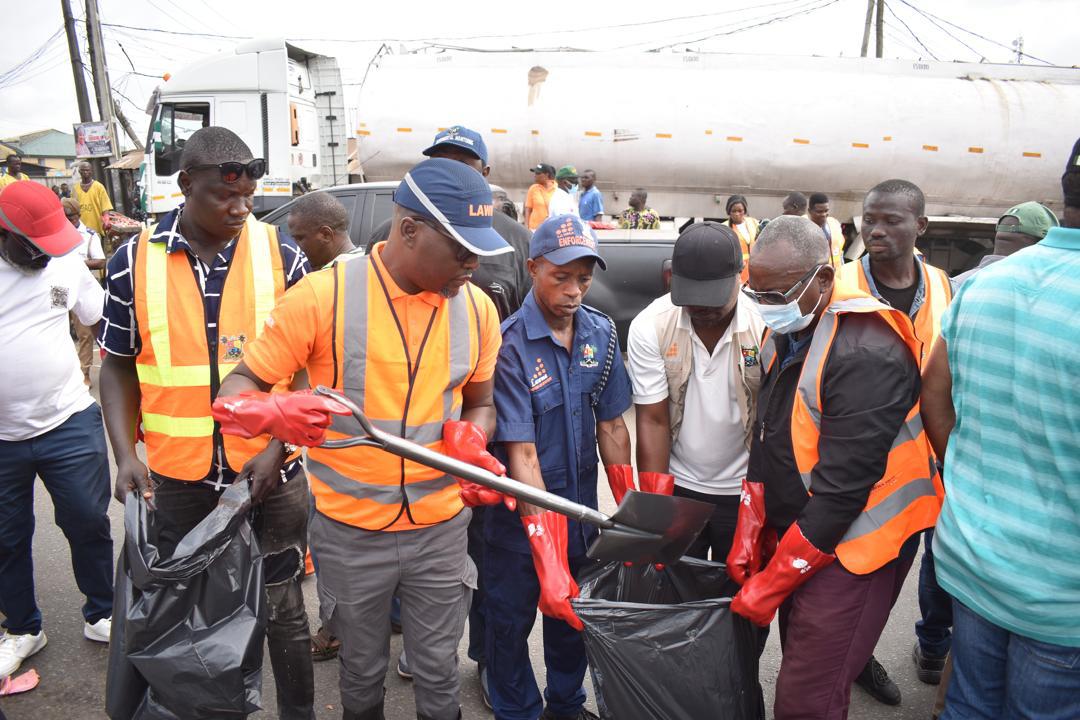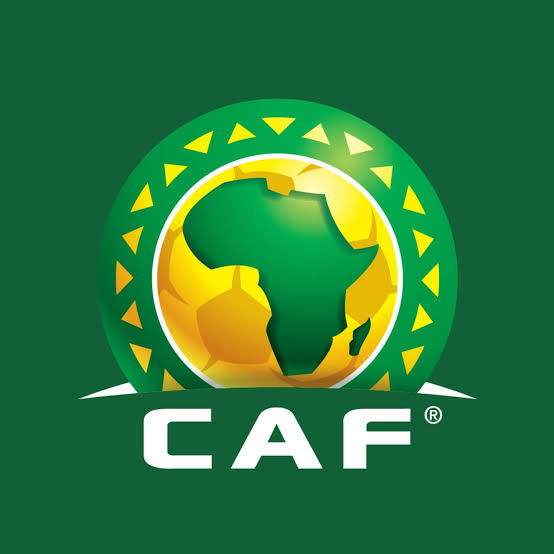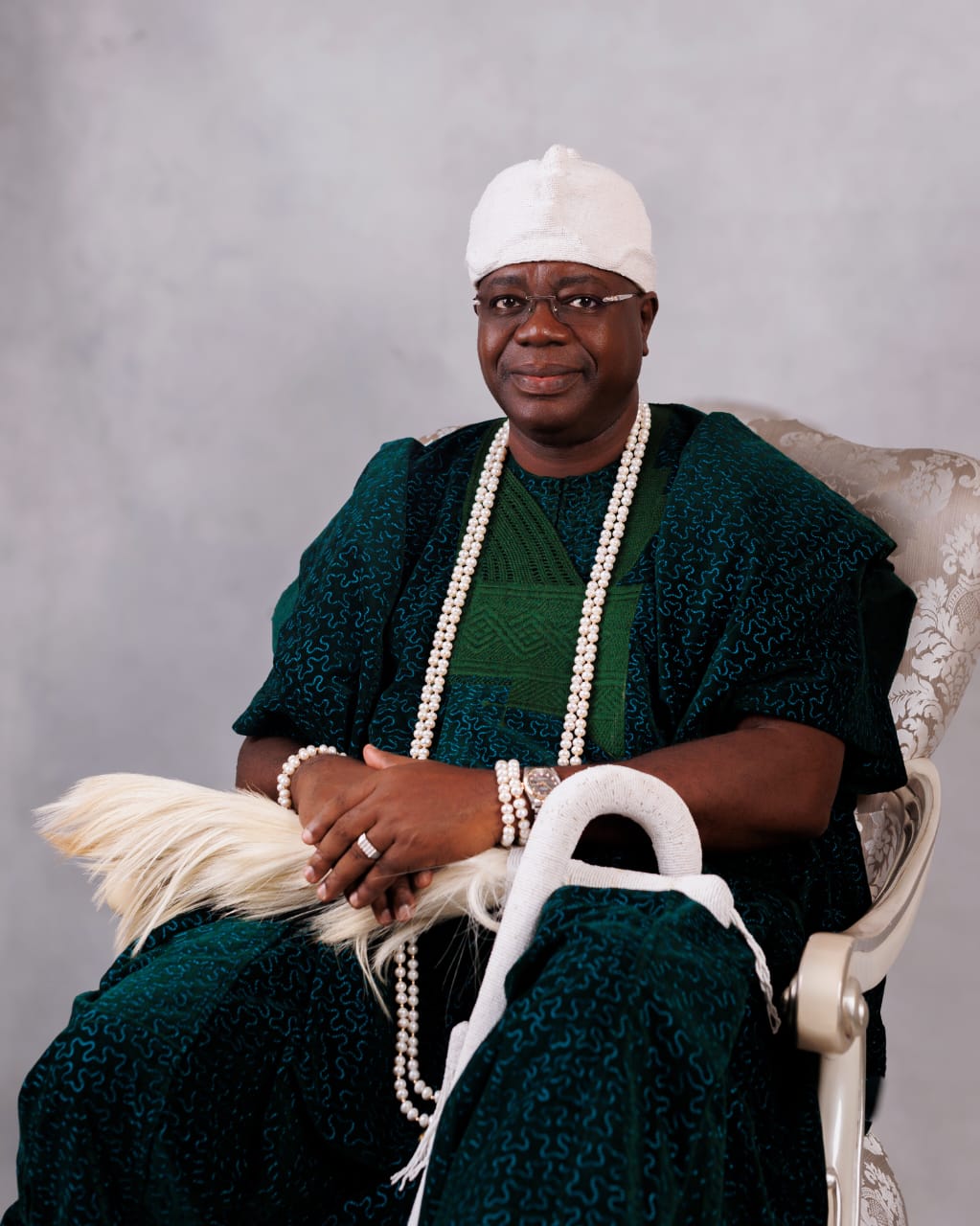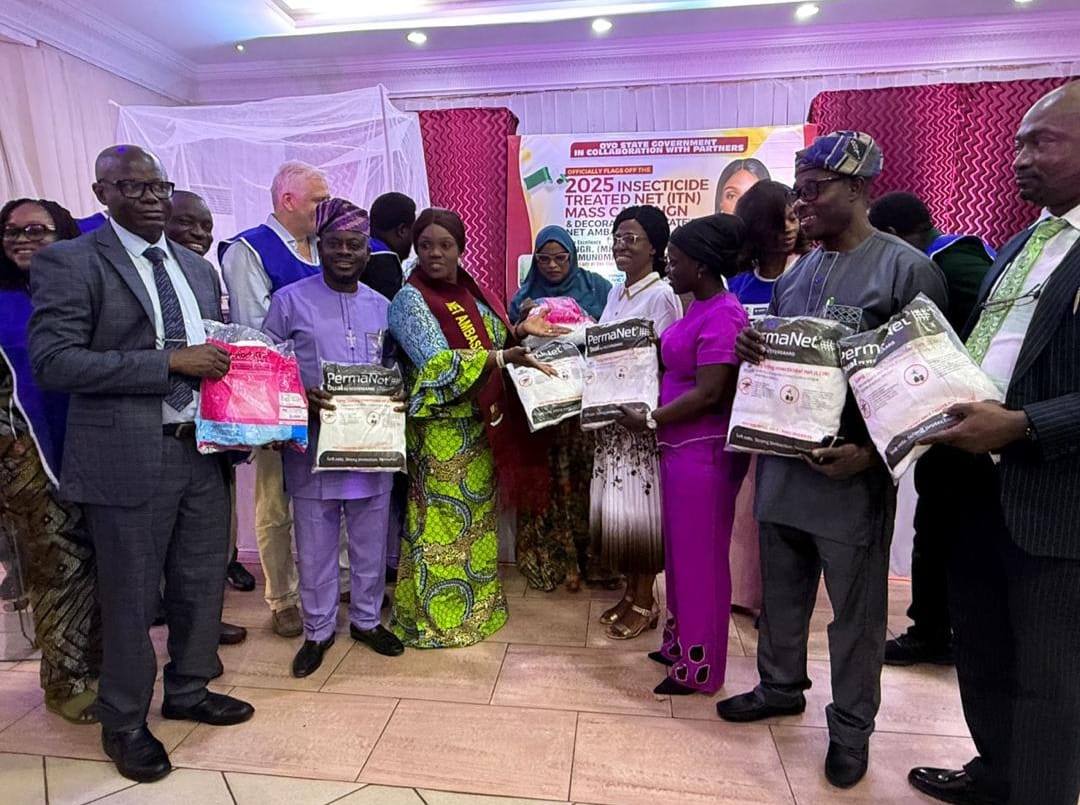BY BABAJIDE FADOJU

Waste management remains one of the most critical challenges facing mega cities across the globe, and Lagos, Nigeria’s bustling economic nerve center, is no exception.
However, in recent years, the Lagos Waste Management Authority (LAWMA) has emerged as a formidable force in transforming the city’s sanitation landscape through innovative initiatives, proactive enforcement, and dynamic public enlightenment campaigns.
Under the leadership of Dr. Muyiwa Gbadegesin, the Managing Director of LAWMA, the agency has not only streamlined waste management processes but also engaged Lagosians in a collective effort to maintain a cleaner, healthier environment.
LAWMA’s mandate extends beyond simple waste collection. The agency plays a pivotal role in enforcing environmental laws, regulating waste disposal practices, and fostering sustainable waste reduction strategies.
Thanks to a series of innovative programs, LAWMA has improved the efficiency and scope of waste management services across Lagos State. From introducing modern waste disposal equipment to developing waste recycling projects, the agency has positioned itself at the forefront of environmental stewardship in Nigeria.
Central to LAWMA’s success is its commitment to robust enforcement measures. The agency’s proactive arrests of illegal waste dumpers and unregistered waste operators serve as a stern warning that Lagos will no longer tolerate environmental negligence. These arrests, far from punitive, highlight LAWMA’s dedication to creating a culture of accountability and responsibility. By holding defaulters to account, the agency is safeguarding the city’s public health and preserving the aesthetic beauty of Lagos’ urban spaces.
What truly sets LAWMA apart is its vigorous public enlightenment campaigns. Recognizing that sustainable waste management is a collective responsibility, the agency has invested heavily in educating Lagosians about proper waste disposal, recycling benefits, and the dangers of environmental pollution. Through town hall meetings, social media engagement, community outreach programs, and school sensitizations, LAWMA is fostering an environmentally conscious citizenry.
These initiatives have translated into growing public cooperation and an increase in responsible waste handling at the grassroots level. Dr. Muyiwa Gbadegesin’s leadership has been instrumental in galvanizing this shift, as he emphasizes collaboration between government, private sector stakeholders, and the public to achieve lasting change.
Leadership at LAWMA
Dr. Gbadegesin’s tenure as MD has been marked by visionary reforms and unwavering commitment. With an impressive background in environmental management and public administration, he has steered LAWMA towards embracing innovative technologies and strategic partnerships that amplify the agency’s impact.
His transparent, proactive approach to governance has earned LAWMA commendations both locally and internationally.
Under his stewardship, LAWMA has become a model agency not only for Lagos State but for other Nigerian states aspiring to improve their waste management systems. Dr. Gbadegesin’s emphasis on sustainability, accountability, and community engagement continues to drive the agency’s successes.
Dr. Gbadegeshin is not the only one providing leadership at the agency; consistent backing from Commissioner Mr. Tokunbo Wahab has been a significant boost, and Governor Sanwo-Olu has publicly emphasized the agency’s vital role in ensuring a cleaner Lagos.
LAWMA’s Dual Role: Regulator and Player
One of the fundamental tensions LAWMA faces is its dual role as both regulator and active participant in Lagos’s waste management ecosystem. On one hand, the agency must set and enforce environmental standards, arrest illegal dumpers, and hold private operators accountable.
On the other hand, LAWMA is directly involved in waste collection and logistics, partnering with private contractors to deliver services across Lagos’s 20 local government areas.
This dual mandate can sometimes create conflicting interests. As a regulator, LAWMA must ensure fair competition, transparency, and adherence to best practices.
As a service provider, it must also maintain operational efficiency and cost-effectiveness. Striking this balance is no small feat, especially when private waste operators sometimes push back against regulatory oversight or attempt to circumvent standards.
Dr. Gbadegesin’s leadership in maintaining clarity, fairness, and professionalism in this arena is commendable, but the tension remains an ongoing management challenge.
Operational and Infrastructural Hurdles
Lagos’s rapid population growth and urban expansion place tremendous strain on LAWMA’s operational capacity. The volume of waste generated daily is staggering, and infrastructure, ranging from trucks and transfer stations to recycling facilities, must continuously expand and modernize to keep pace.
Yet, funding constraints and logistical bottlenecks sometimes hinder the agency’s ability to scale up infrastructure rapidly. Traffic congestion and poorly planned urban settlements complicate waste collection routes, increasing operational costs and time. Moreover, improper waste segregation at the source remains a significant obstacle, limiting the effectiveness of recycling initiatives.
As Lagos continues to grow rapidly, the importance of effective waste management cannot be overstated. LAWMA’s holistic approach; combining enforcement, innovation, and education is proving essential in tackling the environmental challenges of a mega city. The agency’s achievements under Dr. Gbadegesin’s leadership serve as a beacon of hope and a blueprint for sustainable urban sanitation in Nigeria.
Lagosians must support LAWMA by adhering to proper waste disposal practices and actively participating in public enlightenment initiatives. Together with LAWMA, we can create a cleaner, greener Lagos, one that sets the standard for environmental excellence across Africa.








